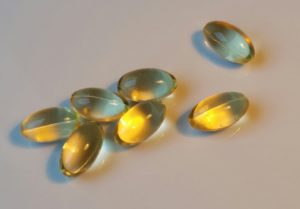 For years the medical advice has been that when taking vitamin D supplements, make sure it is the vitamin D3 form and not vitamin D2. The reasons given are that vitamin D3 is absorbed better and has more health benefits. A recent study found that there is an even better reason for taking vitamin D3 and not vitamin D2. It's because vitamin D2 actually lowers vitamin D levels in the blood.
For years the medical advice has been that when taking vitamin D supplements, make sure it is the vitamin D3 form and not vitamin D2. The reasons given are that vitamin D3 is absorbed better and has more health benefits. A recent study found that there is an even better reason for taking vitamin D3 and not vitamin D2. It's because vitamin D2 actually lowers vitamin D levels in the blood.
From Medical Xpress: Vitamin D3 concentrations are lowered by a common vitamin D supplement
Taking vitamin D2 might lower the body's levels of the more efficient form of vitamin D, vitamin D3, according to new research from the University of Surrey, John Innes Center and Quadram Institute Bioscience. Many people take vitamin D supplements to support their bone and immune health and meet the UK government recommendation of 10 micrograms (µg) each day, especially during the winter months.
There are two forms of vitamin D supplements available: vitamin D2 and vitamin D3. Researchers have found that taking vitamin D2 supplements can lead to a drop in the body's concentration of vitamin D3, which is the form our bodies naturally produce from sunlight and use most effectively to raise overall vitamin D levels. ...continue reading "Study Finds Reason To Take Vitamin D3 and Not Vitamin D2"

 I've frequently mentioned that when taking vitamin D supplements, the one to take is vitamin D3, and not D2. Medscape (the medical site) has an article explaining that results of a
I've frequently mentioned that when taking vitamin D supplements, the one to take is vitamin D3, and not D2. Medscape (the medical site) has an article explaining that results of a